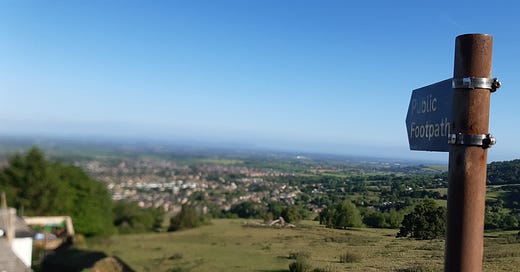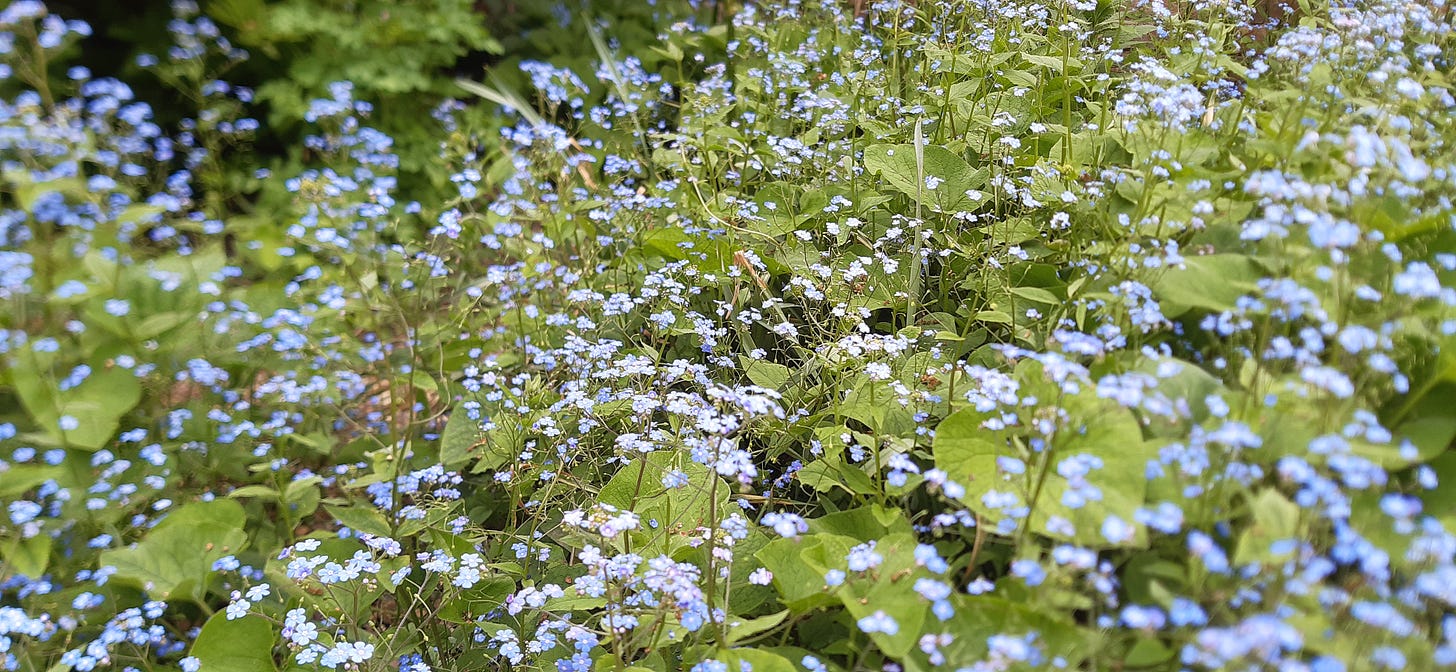I’m six days away from an ultramarathon – a 100km one, to be precise – and this is generally about the time when the nerves begin to build and you can’t think or read about anything other than running. So I’ve turned to the keyboard to try and get some of these thoughts out of my head.
“Why do want to kill yourself?” said my wife and my mother in unison, once I’d finally signed up for this event after dithering for some weeks.
This is a very difficult question to answer – it’s one of those, like “when did you stop beating your wife?” that incriminates you whatever you say. And, frankly, I’ve got tired of explaining how ultras work – they should know by now that it’s a journey, a goal, and achievement (assuming a finish, of course) as well as giving a focus to Sunday mornings for the previous six months. Killing yourself is not the aim, it’s just a by-product.
I’ve been struggling with a foot problem for the last few weeks, so a couple of those Sunday mornings were ‘mixed sessions’ – basically trying to do an equivalent workout to about four hours of trail running, but without pounding my foot on the ground 40,000 times. So I did 90 minutes on the road bike, then 90 minutes on an elliptical trainer, and finally a one-hour hilly trail run. It seems to have worked well and now I’m at the point where I can’t get any more or less fit so cake is the main focus.
I’ve been enjoying David Roche’s ‘Road to Western States’ series of YouTube videos lately, in which the top ultra runner takes a very honest look at his own winter of training, and takes you along with him on some of his most gruelling runs. I’m looking forward to seeing how he gets on, but whether he wins or not, it’s hard to imagine anyone having trained harder.
Roche is fond of talking about ‘brick-laying’, where each workout you complete is a brick laid in the wall of your fitness and ultimate achievement. You never know how wide or how tall your brick wall will become, all you know is that every time you show up and get the work done, that’s another brick laid.
Roche also notes that many of his fellow key contenders for WSER100 are based in the same town as him, running the same trails. So he needs to run them harder. I have a similar metaphor which I use frequently on any early morning session that has involved any reluctance to get out of bed.
Rather than comparing myself to the people I want to beat, my comparison is to the versions of myself that stayed in bed that Sunday morning, that couldn’t be bothered to go and run – or the me that sacked it after three hours instead of pushing on for four. And competing with those other versions of yourself is probably much more healthy than setting yourself against others.
100km is a curious distance to prepare for if you’ve not finished one before. I have a sensible idea of how long it ought to take me to get round, based on previous shorter races, my usual pace in the area and so on. But it’s all meaningless, and I do know from previous races how badly your pace can just fall off a cliff when you’re over-tired, over-hot, under-fed or watered or just in a particularly sulky cave of pain.
So the only real goal next Saturday is to finish, and hopefully to do so in daylight (which allows a good fifteen hours, as it’s the longest day of the year). But if I do finish, it’s more likely to be about 13 and a half hours. Yet every time I look at the weather forecast it gets a degree hotter – there are literally no clouds for three days either side of the race. So it’s going to be hot, and therefore slow.
I’ve done four ultras prior to this, of 33, 35, 42 and 52 miles (but not in that order). So this next one would add another ten miles to the longest run ever. But helpfully, all the hills are in the first half, so it only gets easier as the legs and the will become weaker.
And from each of those previous races, I’ve learned a lot. The most recent ultra (the 42-miler, last year) was the first one where I felt like basically everything went to plan, but it was helpful to know that even then I still slowed to 4mph from 32 miles onwards.
The one remaining puzzle to crack is food. And to be honest, it’s not a puzzle at all, I just need to eat more, all the time. When you’re planning a race like this (and even more so if your idea of race fuelling is just have a gel in your pocket and a handful of jelly babies), it can be hard to get your head around just how much you need to eat.
In timely fashion, my Mum sent me a blog this week that I’d written in 2012, just before my first marathon (London), in which I swore never to eat gels. I would instead fuel myself of water and sports drink. Predictably I hit the wall, hard, at 18 miles (although I did finish that one) and now I couldn’t leave the house without being weighed down by carbs.
Ultras are much quoted (originally from Robbie Britton, I think?) as being an eating context with some running thrown in, and that sounds about right, given that in theory I should need 8000 calories or about 900g of carbs over the day.
That’s a lot of gel – more than a litre in fact, which isn’t an appetising prospect, no matter how good your gels are. I use Veloforte, which are fabulous, but even then some real, actual food is needed.
I remember reading an article or book, possibly by Adharanand Finn, of whom I am a huge fan, where he’d remarked on the luxury of getting to spend all day just running and eating. In a trail ultra, this is even more of a luxury – all I have to do is keep moving, eat stuff and enjoy this lovely countryside. Sometimes random strangers hand me sweets as I pass through their village. Sometimes they clap me (I still find this funny and a bit embarrassing, being unused to fame and to being publicly appreciated in this way).
It’s busy though, isn’t it? I do find there’s a lot to do when you’re running a very long distance and for this reason I’ve never found myself getting bored on an ultra as there’s always something to occupy my mind, beyond simply appreciating my surroundings.
Obviously there’s navigating – to be fair, I have tended to go for very mainstream, very well-signposted trail races that minimise the risk of getting lost, or otherwise races that take place on local trails that I know well. Apart from staying on track myself, I’ve managed to save a number of fellow racers from a terrible day when they’ve gone off route ahead of me. So there’s a small amount of headspace that is thinking about where I’m going.
There’s keeping a check on my food and drink intake – by hour, by grams of carbs, by litres of water and by calories. Three hours in – have I eaten or drunk enough? When can I have my next gel? When am I going to get round to that banana that is rapidly disintegrating in my left pocket?
Then there’s the time and distance calculations – less of a hot topic in a trail race because every mile is different, but on the road or on flatter ground this is definitely something I think about – when do I expect to get to the next mile marker, aid station or hilltop? Should I be going faster or (more likely) slowing down?
Then there’s the aid station checklist – what are the key things to do when we next reach civilisation? Clean socks, cup of tea, send a text to the fam, get some sunscreen on the ears. Have some actual food. Have a bit of a stretch. Thank the marshals and volunteers. Get out again within five minutes.
Sometimes, later in the race, I’ll try and really think about what’s hurting, how I’m feeling. I have found that I can make some pain go away just by really focusing on it, and certainly later in a trail race earlier pains can seem more like a sound than a pain – a buzzing noise, a background hum.
There’s so much to do. How do we ever find time to hold down normal, non-running lives? As such, I’ve never had any audio content in my ears on a trail race. I do like a podcast on a long training run, but not in a race. Apart from increasing the chances of taking a wrong turn, there’s enough to think about and if I do find myself at a loose end in any given mile, I’d like to just appreciate where I am, how I feel in that moment. Or just focus on how long until it’s over and what I’ll do/eat/drink when it’s all finished (respectively – lie on my back; all the things; a lovely IPA).
In the next article in a few days I’ll share my ultra mantras that help get me round when it’s getting tough. Subscribe for free below if you’d like to follow along:







The boredom thing—I totally get what you mean. I don’t know why non-runners (at least the non-runners I know) assume we run out of things to think about. Like, are you kidding, I’ll run out of race before I run out of things to think about!
Out of curiosity, where did you get the 8,000 number for the calories? That seems like a lot for a 13-14-hour race.